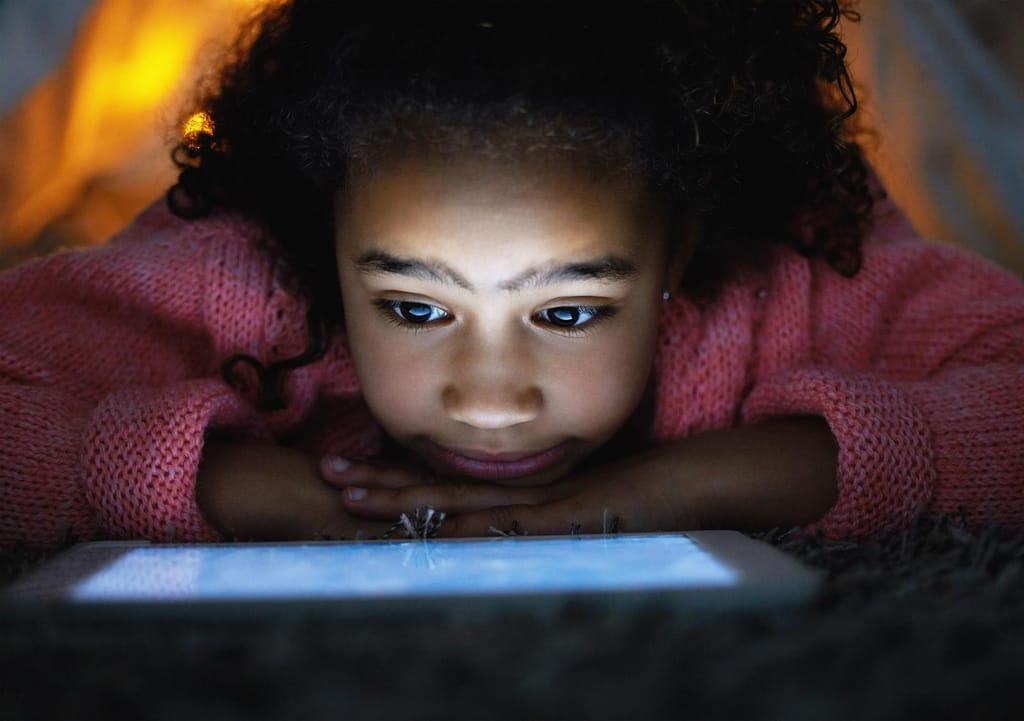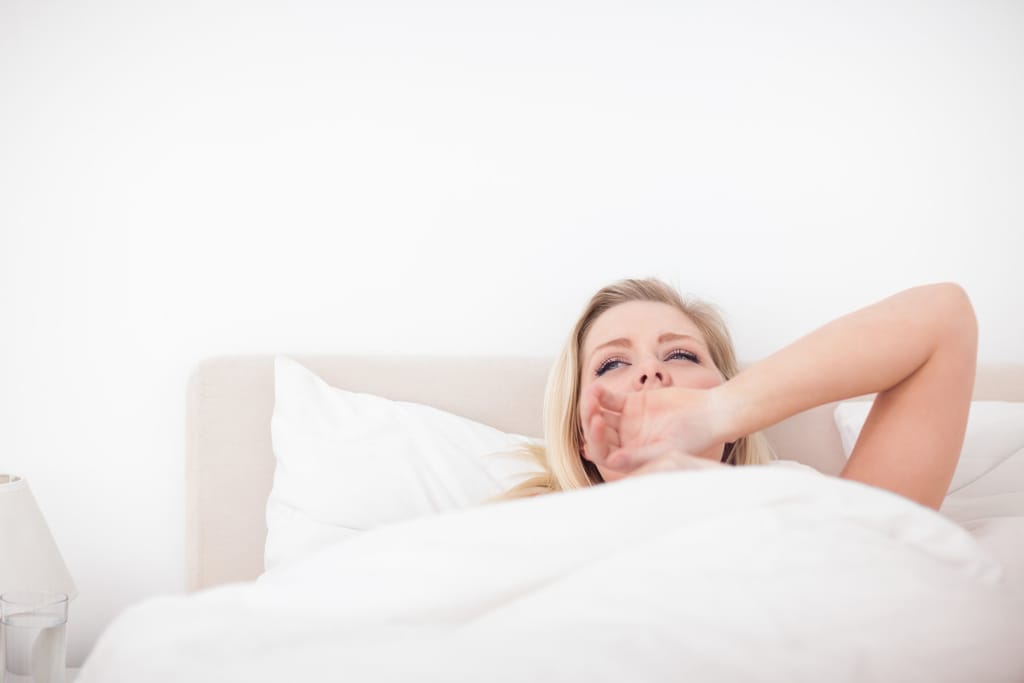Can A.I. help you sleep better?
Many people struggle with getting enough quality sleep. Artificial Intelligence (A.I.) can help us get better quality sleep and improve our overall well-being. A.I.-based technologies can monitor your sleep patterns, detect sleep disturbances, and provide personalized solutions to help you sleep better.
Benefits of sleep optimization
Sleep is essential for maintaining a healthy lifestyle and optimal functioning. Unfortunately, many individuals struggle to get quality sleep regularly. Artificial intelligence (A.I.) has emerged as a potential solution to this problem, providing innovative tools to help people achieve healthier sleeping habits.
Sleep hygiene refers to the habits and behaviors that contribute to quality sleep, such as avoiding screens before bed, maintaining a consistent sleep schedule, and engaging in relaxing activities before going to sleep. A.I. can provide personalized sleep hygiene recommendations based on an individual’s sleeping habits, lifestyle, and preferences. For example, A.I. can track a person’s sleep patterns over time to determine when it may be beneficial to adjust their sleep hygiene practices.
A.I. can also identify sleep disturbances and diagnose sleep disorders. By analyzing sleep data, A.I. can identify patterns that suggest an underlying sleep disorder. This information can then inform treatment decisions and help people manage their sleep issues more effectively. For example, A.I. can detect signals of sleep apnea, a common sleep disorder that is often undiagnosed and untreated.
A.I. can identify environmental factors that may be affecting a person’s sleep. Using sensors and data collected from the environment, A.I. can detect potential sources of sleep disruption, such as noise, light, and temperature. This information can then change the environment and create a more conducive sleeping environment. In conclusion, A.I. can be a powerful tool for optimizing sleep and improving sleep health.

Tracking and improving
Getting enough quality sleep is essential for your physical and emotional well-being, but it’s difficult to get the recommended seven to eight hours of sleep. To help you track and improve your sleep quality, artificial intelligence (A.I.) can be a useful tool. A.I. can analyze data from your sleep tracking device to identify patterns in your sleeping habits. This data can create personalized recommendations to improve your quality of sleep. For example, if your data shows you struggle to fall asleep, the A.I. may suggest you adjust your bedtime and wake up time or limit caffeine consumption in the evening.
If your data shows you often wake up in the middle of the night, A.I. may recommend changes to your sleeping environment, such as reducing the room temperature or using a white noise machine. A.I. can also help you track your progress and ensure you’re sticking to your sleep plan.
By monitoring your sleeping habits over time, A.I. can provide feedback on whether your new habits are effective and make additional recommendations if needed.
You can get personalized sleep coaching from A.I. As a sleep coach, it can offer encouragement and support, as well as beneficial advice on how to make lasting lifestyle changes to improve your sleep.
A.I. and sleep deprivation
Sleep deprivation is a growing problem in modern society and is linked to a variety of negative outcomes, including impaired brain function and physical health. As the use of artificial intelligence (A.I.) in everyday life increases, it is important to consider the potential impact of AI on sleep quality. Introducing A.I. into our lives can have both positive and negative effects on sleep.
On the one hand, A.I. can provide helpful tools to aid with sleep, such as smartphone applications that track sleep patterns and provide personalized sleep reports based on user input. AI can also regulate noise levels in bedrooms, contributing to improved sleep quality.
On the other hand, A.I. can also be used in ways that contribute to sleep deprivation. A.I.-enabled devices, such as smartphones, tablets, and computers, can provide endless distractions and keep us awake longer than necessary. Besides its direct effects, it can also indirectly contribute to sleep deprivation. For example, AI can automate mundane tasks and increase productivity. While this can be helpful, it can also lead to more stress and longer workdays, which can interfere with sleep. It can also lead to increased social media use, which is associated with sleep disturbances.
AI can create an environment of constant stimulation. By tracking users’ behaviors, AI-enabled devices can tailor content to maximize engagement. This can lead to an overstimulated brain, making it more difficult to wind down and fall asleep.

The role of A.I.
A.I. algorithms can monitor sleep patterns, provide personalized advice, and offer tailored solutions to help users achieve better sleep. A.I. technology can help users monitor their sleep habits and routines in several ways. For instance, wearable device technology can measure sleep duration and quality, as well as provide feedback on how well a person is sleeping. This data can then help users recognize any potential issues they may have with their sleep.
A.I. technology can provide personalized advice on how to improve sleep habits. This can include offering personalized tips for creating a better sleep environment and helping users to develop a consistent bedtime routine. The A.I. can also suggest lifestyle changes that may improve sleep quality, such as avoiding certain foods and drinks before bed, or reducing the time spent on electronic devices.
A.I. improvements offer tailored solutions to help users achieve better sleep. This may include providing recommendations for mattress types, pillow types, and sleep aids that are tailored to each user’s individual needs. A.I. can also develop personalized sleep programs that can help users to establish healthy sleep habits and routines.
Conclusion
A.I. can help you sleep better by providing personalized recommendations and suggestions, including sleep tracking, white noise, and even smart lighting. It can also offer personalized advice and guidance on how to improve sleep hygiene and habits that can help lead to better sleep. This technology can provide the tools to help you achieve better sleep and improve your overall health and well-being.
Reference
- Alton, L. (2017, July 10). How AI will help you sleep better at night. VentureBeat. https://venturebeat.com/ai/how-ai-will-help-you-sleep-better-at-night/
- Jolly, J. U. T. (2023, March 2). Technology that encourages rest? Here are 10 tech gadgets that can help improve your sleep. USA TODAY. https://eu.usatoday.com/story/tech/2023/02/28/tech-gadgets-that-improve-sleep/11364165002/
- You are being redirected. . . (n.d.). https://www.analyticsinsight.net/artificial-intelligence-can-help-you-have-a-peaceful-sleep/